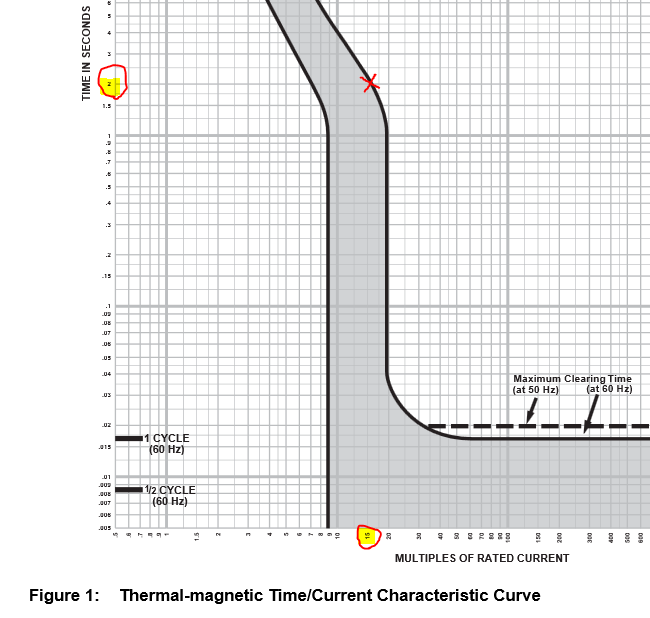Standard circuit breakers are not designed to trip instantaneously for all loads. Breakers are designed with time curves they must meet, and for anything but the highest currents there is a noticeable delay from seconds to hours.
Schneider Electric PDF: Your brand/type of breakers could differ from this chart, but the concepts are largely the same for most magnetic circuit breakers.

Here's some math provided by Tester101 in the comments below:
14 gauge solid uncoated copper is 0.00307 ohms per foot. A 100 ft. run of #14 would be 0.614 ohms (200 ft. * 0.00307 = 0.614 ohms). According to Mr. Ohm, Current (I) = Volts (V) / Resistance (R). Therefore a direct short would be 195.44 amperes (120 V / 0.614 = 195.44 A). Which is 13 times a 15 ampere circuit, so it should trip within 2-3 seconds. Even with a 200 ft. 20 ampere circuit, it would be 310.88 amperes (200 * 0.00193 = 0.386 120 / 0.386 = 310.88) . Which is 15 times rated current, and again 2-3 seconds to trip. However, that's based on the trip curve in the posted link, which may be different than the trip curve of the breakers in question.
I've marked an example on the chart which shows that at a current of 15 times the rated current, it can take up to 2 seconds to trip (download the PDF and zoom in so you can actually read all the numbers). For a 15 amp breaker, that's over 200amps for almost 2 seconds. That's enough power to melt strands of your extension cord and possibly damage whatever you used to short the first two outlets.
When you touch two wires, only a small area of the wire touches, and explosively heats and melts (the POP and spark). I suspect if you stripped the extension cord and used a proper wire clamp on the ends to make a good connection, you might be able to pull enough current to quickly trip the breaker, assuming the outlet doesn't internally melt from arcing when you plug it in.
The main point is that this IS NOT a good thing to do. Tripping a breaker to find it with a short is pretty dangerous, and you can damage outlets or other wire junctions in the process. If there's a wire nut in an adjacent outlet that's not making the best connection, it could melt. Then you have to find and fix that which could be a challenge unless smoke and fire direct you to the problem area.
Plug in a radio, turn it up, and start manually throwing breakers. When the music stops, you found the right breaker. Don't purposely short wires.

